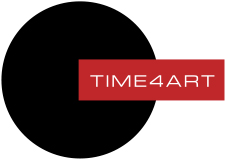YOSHIO IKEZAKI: POETRY OF PAPER
June 11 – July 24, 2008
Curated by Homeira Goldstein, Chairman of the Board of ARTS Manhattan, Poetry of Paper is the most recent work of Yoshio Ikezaki. A Professor at the Pasadena Art Center College of Art and Design, Instructor at the Southern California Institute of Architecture, Visiting Professor at Musashino Art university, Tokyo, Japan and an Instructor and special lecturer at Tama Art University, Tokyo, Japan, he lives in Japan and U.S.
Yoshio Ikezaki is an artist and papermaker. He creates his art with two basic materials, Paper and sumi-ink. He studied traditional Japanese papermaking under master papermaker, Shigemi Matsuo, in Yame, Japan for six years after having earned his MFA in painting from Florida State University. He creates paper for his own painting and sculpture in order to control uniform thickness and fiber distribution taking ink’s reaction to the paper into account and creating a ratio of different fiber materials.
The images in his sumi-ink paintings are deeply associated with the memories of landscapes he saw during his childhood in Kitakyushu Island, Japan. He visualizes them as if they were slow-moving photographs. To him, there are no man-made objects, but all natural elements like water, earth, sky, light, wind, and moon etc. He shares that experience with his audience through his art as all human beings have experienced similar memories to some degree.
His collages represent gathered images of the same landscapes. The selection and composition of painted landscapes and other images, like trees and plants, emerges through his artistic vision, as he sees the meaning, the relationship and how they are related to each other, which specifies the placement of images and choices of handmade papers.
He uses mulberry bark for his paper sculptures. He cooks them with soda ash for a few hours and beat them after rising with clear water. He uses Japanese Nagashizuki technique to form a sheet of paper. Each sculpture is about 50 to 150 sheets accumulated on top of each other and pressed with 400 pounds of weight to make the layers condensed and hard for 2 weeks. He sees the handmade paper as human skin and spirit. Each sculptural composition deals with the philosophical idea of Zen Buddhism thought of “Shogyou Mujyo” -everything on earth evolves, changes, and perishes but spirit remains to reborn a new life.
His current sumi-ink paintings and sculptures, express MA, Japanese aesthetic term to designate an artistically placed interval in time and space which include meaningful voids created by the deliberate use of blank space. The balance and unification between positive and negative space is the essential theme of his abstract landscape painting and his handmade paper sculptures.


